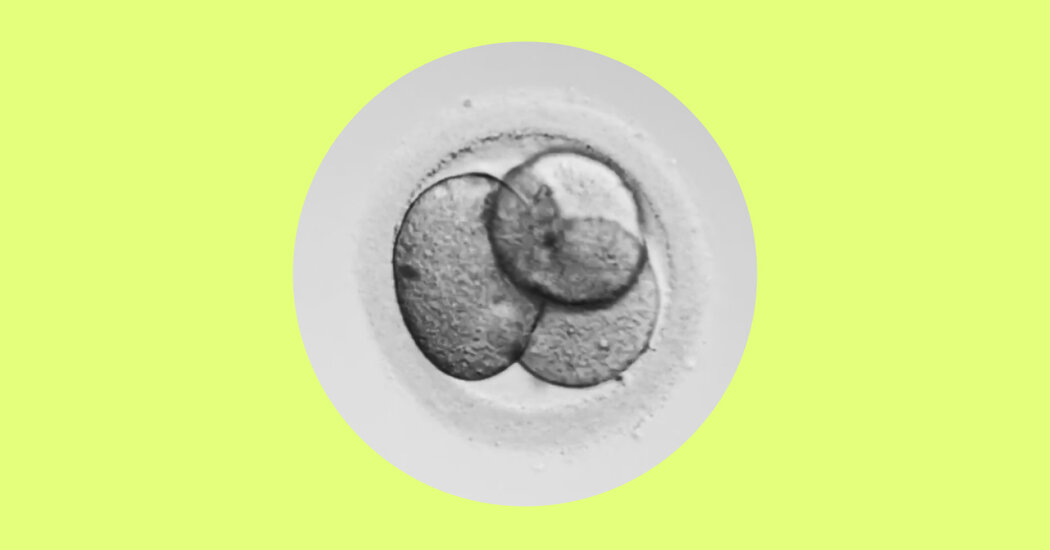Embryos, Ethics, and the Future of Human Life
This is the embryo that became my daughter. Here it is growing in a lab over five days. Untold numbers like this one are sitting in storage and studied in labs around the world.
The introduction introduces a personal story of a parent-to-be and the global implications of developing embryos in laboratory settings. The narrator shares their experience with in vitro fertilization and the emotional and ethical complexities that arose when receiving the news about the development of embryos. The timing coincided with a significant Supreme Court ruling, which highlighted the broader legal and ethical debates surrounding embryos as “potential life.” These concerns emphasize the urgent need for society to address the treatment and status of embryos in light of evolving scientific capabilities, legal rulings, and political environments.
The Embryo Question: Navigating Science, Ethics, and the Law
As the debates surrounding embryos have intensified, the interplay of ethics, law, and scientific development has become more pronounced. The distinction between the creation and destruction of potential life grows increasingly complex, weaving into societal discussions on family, religion, and health. Embryos, whether in their natural entirety or as models engineered for research, stand at the heart of these deliberations. Despite advancements in science offering stunning insights into human development, they also invite crucial questions that bear weight on how society comprehends the essence and purpose of life itself. As the scientific community pushes against established boundaries like the 14-day rule, it is clear that a broader societal engagement is necessary. This dialogue must involve not only those creating the parameters of research but also the public, to ensure that the progression of knowledge does not outpace the consensus on its ethical implications. This intersection of science and ethics demands active participation, encouraging reflection on both the privileges and responsibilities that this newfound computational capacity presents.
State Legislation and Embryo Research
In the years since Dobbs, state after state banned abortions, and referendum after referendum enshrined abortion rights. Fertility patients in states like Texas and Tennessee worried about the legal status of their treatments, as anti-abortion politicians insisted that life began at conception. In February 2024 an Alabama court ruled that frozen embryos in an I.V.F. clinic were children, their destruction valid grounds for a wrongful-death claim. Until this decision, attempts to cement the links between abortion and embryonic personhood had largely ignored I.V.F., since it is widely perceived as a tool to create, rather than destroy, “potential life.” But this was a blunt assertion of full legal personhood for these little bundles of possibility that exist, as one scholar has put it, “at the borders of science, morality and democracy.”
Ethical Considerations in Embryo Research
As scientists have expanded their work with embryos, ethical issues have become more pronounced, particularly in relation to evolving technologies that allow embryos to be grown longer in lab settings. Historically, there has been a widely accepted 14-day rule for embryo research, a guideline based on early biological developments such as the appearance of the primitive streak, marking a stage where an embryo begins forming distinguishable body structures. However, this rule is now being revisited as advancements in research push the boundaries of what is scientifically possible. Allowing research beyond this period could potentially lead to breakthroughs in understanding developmental disorders and preventing miscarriages, yet it also raises significant moral and ethical questions about the treatment and status of embryos. There is a growing need for public engagement and discussion to weigh the scientific benefits against the ethical implications, in a landscape where these tiny clusters of cells represent a complex intersection of science, ethics, and human values.
Ethical Challenges in Human Embryo Research
As we continue to explore the complexities of embryo research, it is evident that this field holds significant potential for medical breakthroughs, yet it is fraught with ethical dilemmas and societal implications. The boundaries of what science can achieve are expanding rapidly, and it is crucial to engage in thoughtful dialogue about the rules and norms that should guide these advancements. The questions surrounding embryo research are not just scientific but also cultural, ethical, and political, demanding a nuanced approach from both the scientific community and society at large. As this series progresses, we will delve deeper into these issues and the impact they have on the future of human reproduction, life, and law.















Post Comment